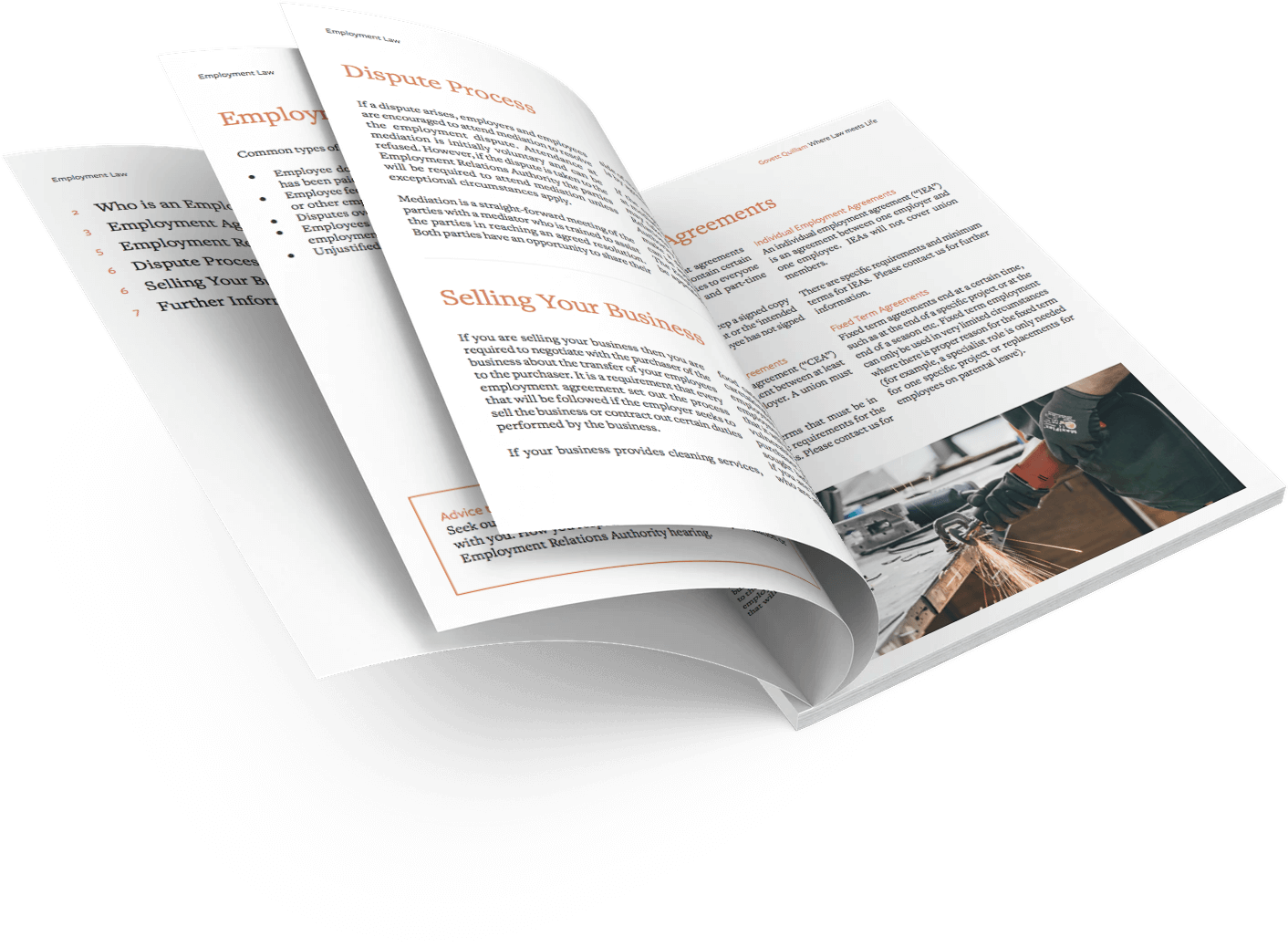
GQ Insight
The general principles governing an employee’s right to be paid in accordance with their employment agreement are being tested by the COVID-19 pandemic.
Ready, willing and able
Generally, where an employee is ready, willing and able to work, employers are obliged to pay them in accordance with their employment agreement. When an employee is ready and willing but not able to work due to an employer’s actions, such as in lockout situations, they are entitled to the wages they should have received. On the reverse, an employer is entitled not to pay an employee for work they are contracted to perform where they are not ready, willing or able to do so.
However, the COVID-19 pandemic, and the requirement in New Zealand that all non-essential businesses close provides a particular challenge for this concept. While there are workers who have remained working as usual as part of an essential service, as well as non-essential workers who are able to work from home, there is a significant portion of New Zealand’s workforce that work in a non-essential business and are unable to work from home. Accordingly, while such employees may be ready and willing to work, they are unable to do so due to the restrictions imposed by the Government. It is certainly debatable that in this instance employees are not entitled to payment as usual.
Frustration of contract
Further, the general principle of frustration of contract provides that where an agreement becomes impossible to perform due to an unforeseeable, extraneous event, the party experiencing the event may be excused from its failure to perform, as the contract is treated as if it was automatically terminated going forward.
The bar for establishing frustration is significantly high, and it is yet to be seen whether the Court will accept the COVID-19 crisis as a legitimate frustration of contract in relation to employment agreements.
Force majeure provisions
Some employment agreements include a clause to protect parties from the impact of events beyond their control which affect their ability to meet their contractual obligations, such as natural disasters, acts of war and epidemics or pandemics. Where such a clause is included, employees and employers may be exempt from any liability for a failure to perform their obligations under the agreement, such as the obligation to provide work and pay employees remuneration. This is of course, subject to the specific terms of the relevant force majeure provision and whether the current pandemic can appropriately be classified as a force majeure event in light of the particular provision, particularly where the provision does not expressly refer to “pandemic” or “disease”.
Further, force majeure provisions will generally include the requirement for the defaulting party to take all reasonable steps to mitigate the event or its consequences. In relation to the current pandemic, this may include considering applying for any eligible Government assistance.
While force majeure clauses are not considered rare, in our experience they are often not included in employment agreements. A flow-on effect of this pandemic may well be that force majeure provisions become a staple in all new and varied employment agreements.
Government assistance for employers
As the fundamental principles regarding the performance of obligations under employment agreements are being tested by COVID-19, a number of schemes have been introduced by the Government to provide a mechanism to ensure that employees are retained and paid throughout the lockdown period (at a range of thresholds). In particular, the Wage Subsidy Scheme and the Essential Workers Leave Scheme provide assistance to employees may be ready and willing but who are unable to carry out their work due to the restrictions imposed by the Government or the Ministry of Health guidelines.
A similar approach to government assistance was taken in the wake of the 2011 Christchurch earthquakes, perhaps the only modern example we can turn to for guidance, when many businesses were forced to close and a large portion of the city’s workers were unable to work.
In a time where a number of principles underpinning an employee’s right to be paid are being tested, the Government has introduced a number of schemes in an attempt to provide a stopgap and keep workers paid and in employment for the currently underdetermined period of this crisis. The extent to which these schemes will be successful will no doubt be seen in the coming days, weeks and months.
GQ insight piece written by Associate, Rebecca Eaton.






.png)

